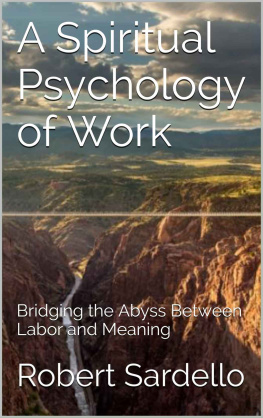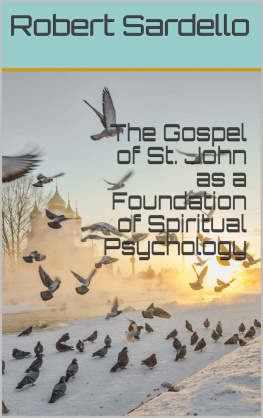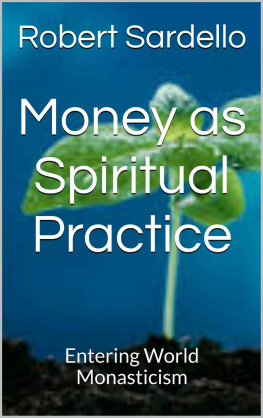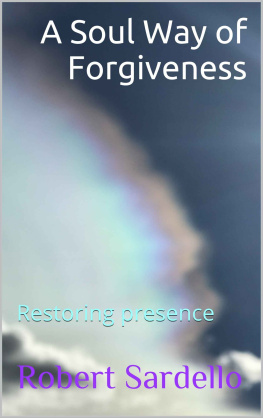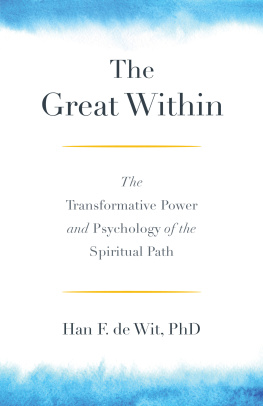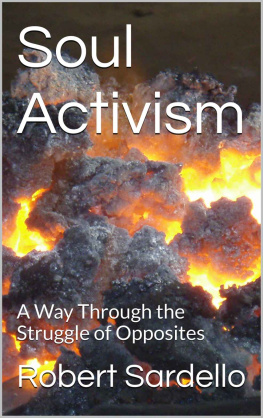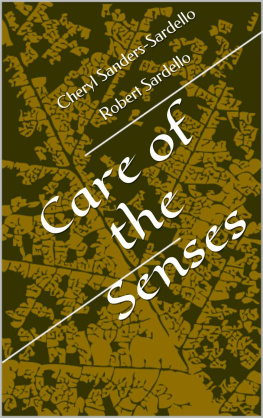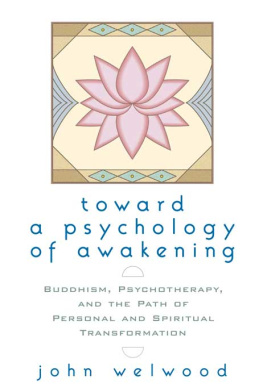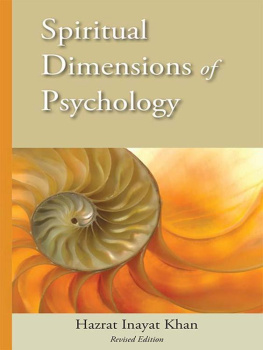Robert Sardello - A Spiritual Psychology of Work: Bridging the Abyss Between Labor and Meaning (The School of Spiritual Psychology Archives Book 2)
Here you can read online Robert Sardello - A Spiritual Psychology of Work: Bridging the Abyss Between Labor and Meaning (The School of Spiritual Psychology Archives Book 2) full text of the book (entire story) in english for free. Download pdf and epub, get meaning, cover and reviews about this ebook. year: 2016, publisher: Goldenstone Press, genre: Religion. Description of the work, (preface) as well as reviews are available. Best literature library LitArk.com created for fans of good reading and offers a wide selection of genres:
Romance novel
Science fiction
Adventure
Detective
Science
History
Home and family
Prose
Art
Politics
Computer
Non-fiction
Religion
Business
Children
Humor
Choose a favorite category and find really read worthwhile books. Enjoy immersion in the world of imagination, feel the emotions of the characters or learn something new for yourself, make an fascinating discovery.
- Book:A Spiritual Psychology of Work: Bridging the Abyss Between Labor and Meaning (The School of Spiritual Psychology Archives Book 2)
- Author:
- Publisher:Goldenstone Press
- Genre:
- Year:2016
- Rating:4 / 5
- Favourites:Add to favourites
- Your mark:
- 80
- 1
- 2
- 3
- 4
- 5
A Spiritual Psychology of Work: Bridging the Abyss Between Labor and Meaning (The School of Spiritual Psychology Archives Book 2): summary, description and annotation
We offer to read an annotation, description, summary or preface (depends on what the author of the book "A Spiritual Psychology of Work: Bridging the Abyss Between Labor and Meaning (The School of Spiritual Psychology Archives Book 2)" wrote himself). If you haven't found the necessary information about the book — write in the comments, we will try to find it.
Robert Sardello: author's other books
Who wrote A Spiritual Psychology of Work: Bridging the Abyss Between Labor and Meaning (The School of Spiritual Psychology Archives Book 2)? Find out the surname, the name of the author of the book and a list of all author's works by series.
A Spiritual Psychology of Work: Bridging the Abyss Between Labor and Meaning (The School of Spiritual Psychology Archives Book 2) — read online for free the complete book (whole text) full work
Below is the text of the book, divided by pages. System saving the place of the last page read, allows you to conveniently read the book "A Spiritual Psychology of Work: Bridging the Abyss Between Labor and Meaning (The School of Spiritual Psychology Archives Book 2)" online for free, without having to search again every time where you left off. Put a bookmark, and you can go to the page where you finished reading at any time.
Font size:
Interval:
Bookmark:
A Spiritual Psychology of Work
Bridging the Gulf Between Labor and Meaning
Robert Sardello
The Symptomatology of Work
The Difference between work and a job
We live in a peculiar time with respect to the question of work; while there are fewer and fewer jobs available, there is more work to be done in the world than ever before. If you look in the OED, a striking difference between the words work and job is immediately apparent. Work is something whole; it refers not just to the act of doing something, it also refers to what is done, such as a work of art, or a work of architecture. The word work also carries a moral connotation, such as good works. On the other hand, doing a good job simply means that a specialized operation was carried out in such a way that it was brought to successful completion. The word job is defined as a part or a piece of a work, particularly a part that is done as ones specialization or profession. We see immediately that a job can quite easily lose its connection with work; one can easily get lost in the specificity of what one is doing, and, thus, loses an imaginative connection with the whole to which it rightly belongs.
Work and Life
Very few people today feel that they are involved in a work. Why is this the case? In order to come to an understanding of your relationship to work, it is necessary to look at the influences of your past. The particular importance of these influences is determined by the extent to which you were absorbed into the influences of others and the degree to which you were able to remain relatively independent of your surroundings. By this I dont mean that you were isolated from them, but not united with them. In order to experience being involved in a work, it is necessary to be united with life, not someone else's life. Work concerns the acts that one does in the world that are united with one's life. A job concerns the acts that one does that require becoming forgetful of ones own life and labor; it serves someone else's interests, whether this be an individual, a business, or a large corporation. This distinction can quite readily become blurred. It is not likely that having a job at the local Burger King is an expression of doing something in the world that brings the fullness of ones life into the world. However, having a job at the top local law firm does not necessarily fully express one's life in the world either. The distinction becomes blurred when ones talents and abilities are called upon for a task, but these talents and abilities are harnessed to accomplish what someone else wants in the world rather than what is demanded by your own life. A job originates from and amplifies a one-sidedness that often requires relinquishing the true creativeness that characterizes your own spirit and the concomitant depth of your individuality. Put bluntly, receiving a salary is the compensation for forgetting who you are. Work, on the other hand, comes from and amplifies the effort involved in becoming a complete human being.
The difference between work and a job has been drawn in this rather exaggerated manner in order to help us re-imagine work. I am not saying that this opposition is always present. If the distinction were as clear as that pictured above, the answer would seem to lie in the necessity of working for oneself rather than for others if one really wanted to stay in connection with the unfolding of life. However, working for oneself can just as easily be fraught with the desire for external rewards. However, being involved with others in work offers the promise of doing much more in the world than could ever be accomplished alone.
The conditions of work have changed radically since the 15th century. Before that time, in whatever one did in the world, there was some connection with the whole of the cosmos. Doing something in the world came from a larger connection that was maintained with the cosmos, whereas now the evolution of humankind is entwined with gaining independence from the larger cosmos. In the domain of work, this gradual independence means that work became more and more bound to the physical world.
Formerly, maintaining a connection with the larger cosmos meant that a person could find in a chosen vocation the connection between what he/she was producing and what it meant for the world. One, therefore, took an interest in the shaping of his product because he/she saw clearly what a production would become in life. What one made and what one did helped the world retain an imagination of the larger cosmos; what one made and did was always in the image of the larger cosmos. This way of imagining work is no longer present. And, as can easily be recognized, the future evolution of vocational life will consist in the ever increasing differentiation and specialization of vocation. People will increasingly lose interest in the work that occupies the greater part of their lives.
Soul and Work
I am maintaining the distinction between work and a job as a way of more closely understanding what seems to be missing in our labor in the present world. It seems to me that it is not by accident that when something whole and beautiful is made in the world, we speak of that thing as a work of art, a work of architecture, a work of literature, or music. For this reason, what we do in the world deserves the name work only when it involves the full participation of our body, soul, and spirit. However, when the word work is typically used in present times, it refers to being worked rather than being creatively engaged with something that is larger than another persons self-interest. As David Whyte points out in his book, The Heart Aroused - Poetry and the Preservation of the Soul in Corporate America , a job does not ask enough of us, and yet it exhausts the narrow parts of us. For Whyte, preserving soul means coming to recognize, honor, and foster the presence of a sacred otherness in our labors. Consequently, in his context, preserving soul means preserving the desire to live a life that a man or woman can truly call his or her own. Unfortunately, this is a worldview that is rapidly fading in vocational life.
We can begin to see now even more clearly the difference between work and a job. Soul refers to the inner qualities of life. When what we do has inner qualities that are brought to expression in what we do in our labors, when those inner qualities are birthed into the world ( as the word labor suggests ), then we are engaged in work. When we are only pushed from the outside, made to do things that fulfill a needed function, then we are doing a job.
Reading Job Symptoms
Job Addiction
The right relationship between work and life is by no means simple. Since a true imagination of work is absent for most of us, our job is considered separate from our life. When we go to a job in the morning, we put our life on hold; and when we come home in the evening, life resumes. Whether this characterization is accurate, it is true that this is what we feel. I remember when I was young, in my twenties, trying to decide on a career. At the time, I was seriously considering becoming a geophysical engineer. I distinctly remember a moment of true horror when I imagined what that career would actually be like. I had a terrible premonition of sitting in a large room with row after row of drawing tables and desks, working on some small problem, the significance of which would be completely unknown to me. I imagined doing this day after day, year after year. The imagination made me nauseated. Even though I had a strong attraction to the study of the earth and of minerals, it was very clear to me that I could never do that kind of work. I could simply not work in that kind of situation, and something within me made that very clear. What I most feared was that my life would be separated from my work, and I could not stand such a thought. Thus, I began a long search for a vocation, a search that is still in process, a search that has become increasingly clearer only in the past few years. But even now, I cannot say that I know what I am doing, primarily because there is nothing outside what I am doing that affirms that the work I do belongs to the world. I make no salary, have no retirement plan, am not on a career ladder, am not covered by any benefits, do not work regular hours, do not have a daily place to go to work, do not get raises, have no title. At the same time, I work all the time. If I had a job, I would definitely be called a workaholic. Yet, I am not addicted. What is the difference?
Next pageFont size:
Interval:
Bookmark:
Similar books «A Spiritual Psychology of Work: Bridging the Abyss Between Labor and Meaning (The School of Spiritual Psychology Archives Book 2)»
Look at similar books to A Spiritual Psychology of Work: Bridging the Abyss Between Labor and Meaning (The School of Spiritual Psychology Archives Book 2). We have selected literature similar in name and meaning in the hope of providing readers with more options to find new, interesting, not yet read works.
Discussion, reviews of the book A Spiritual Psychology of Work: Bridging the Abyss Between Labor and Meaning (The School of Spiritual Psychology Archives Book 2) and just readers' own opinions. Leave your comments, write what you think about the work, its meaning or the main characters. Specify what exactly you liked and what you didn't like, and why you think so.

